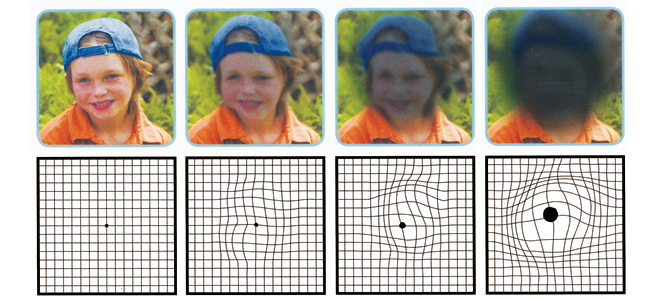Low blood levels of vitamin C increases risk of macular degeneration by about 2 to 3 times. In rats, supplementation of vitamin C reduced retinal damage from excessive light exposure.
Therapeutic doses of vitamin C and bioflavonoids can reduce retinal swelling in wet macular degeneration within about a week. At least 750 mg/day to 1500 mg/day of supplemental vitamin C taken in divided doses (3 times a day) has been reported to be useful in most cases. Smokers should take at least an extra 500 mg/day for each pack of cigarettes smoked, since this amount is destroyed by smoking.

Supplemental Vitamin C in the ascorbic acid form above 1500 mg/day can reduce absorption of important minerals including calcium, chromium and copper which usually are the rate limiting factors in the production of SOD (Superoxide dismutase). SOD is an antioxidant enzyme produced in our bodies to neutralize a specific oxygen-derived free radical called superoxide. These oxygen-derived free radicals, also known as reactive oxygen species (ROS), indiscriminately attack vital molecules, such as proteins, carbohydrates, and fats, which are a part of every single cell in our bodies, both inside and outside the cells, changing their function and impairing the normal course of metabolism in cells.
Ascorbic acid is specifically concentrated in the eye through the production of aqueous humor by the ciliary body. Thus intraocular levels can sometimes reach higher levels than any other part of the body and in combination with sunlight can result in disruption of connective tissue structures.
